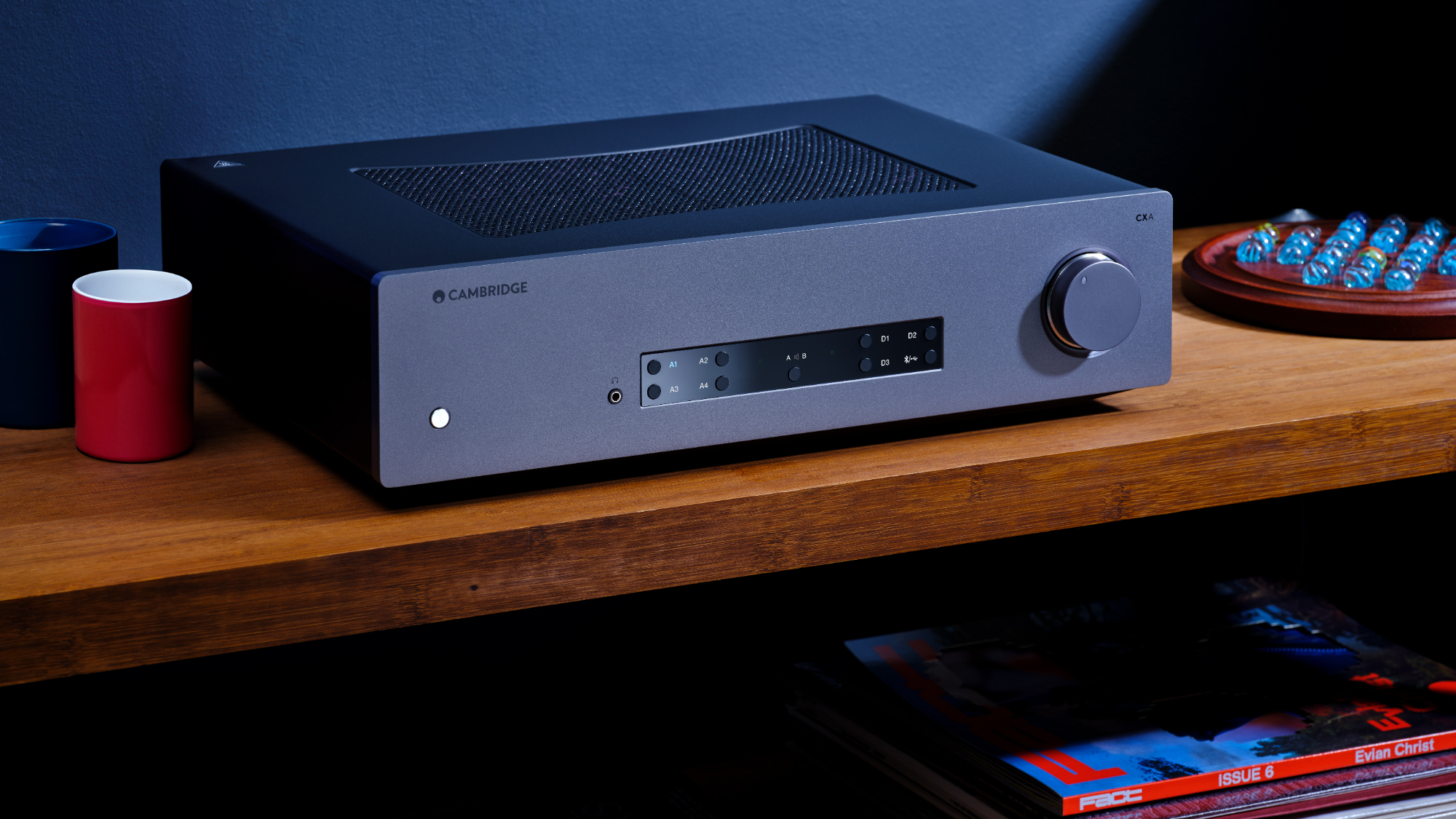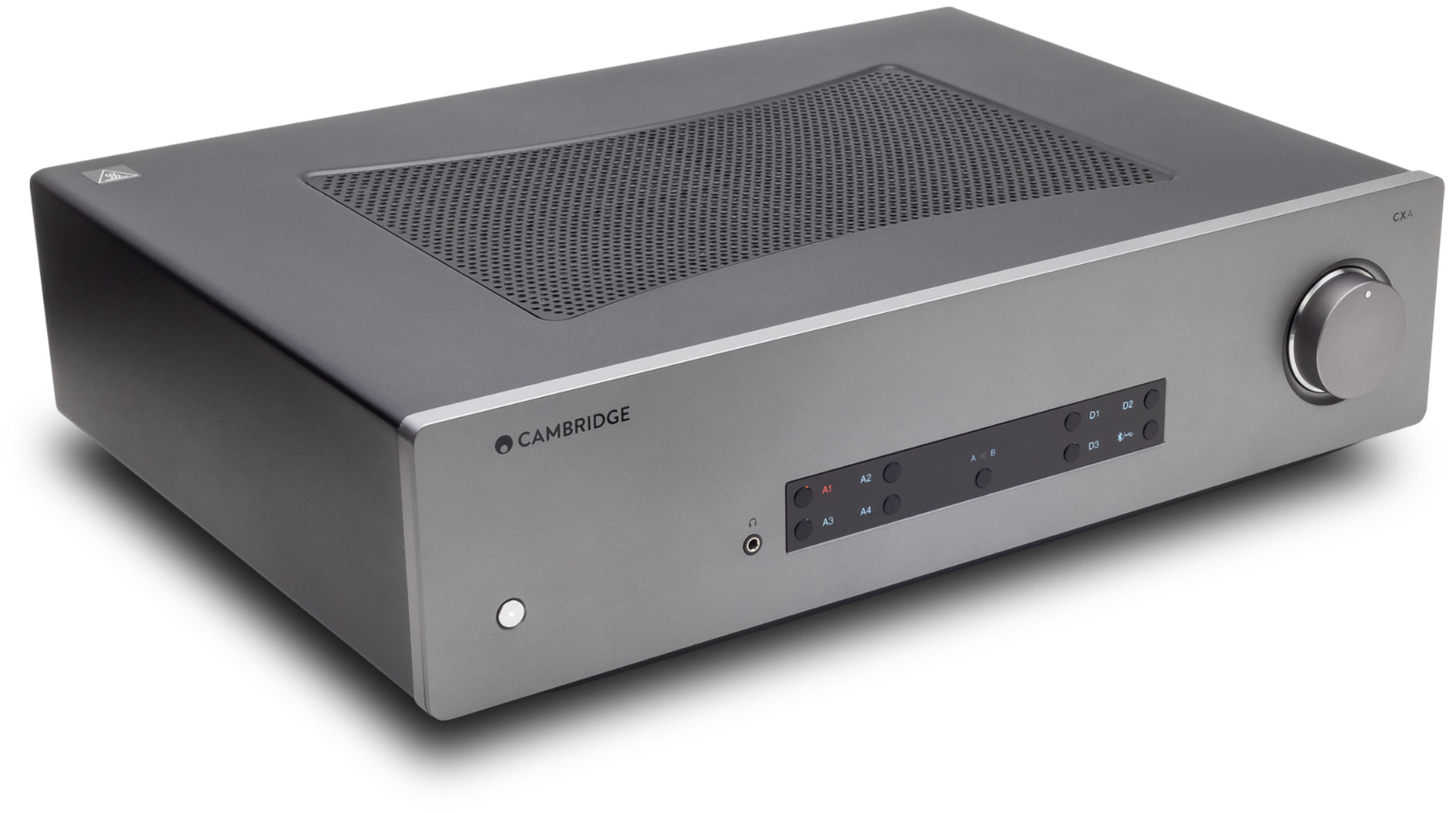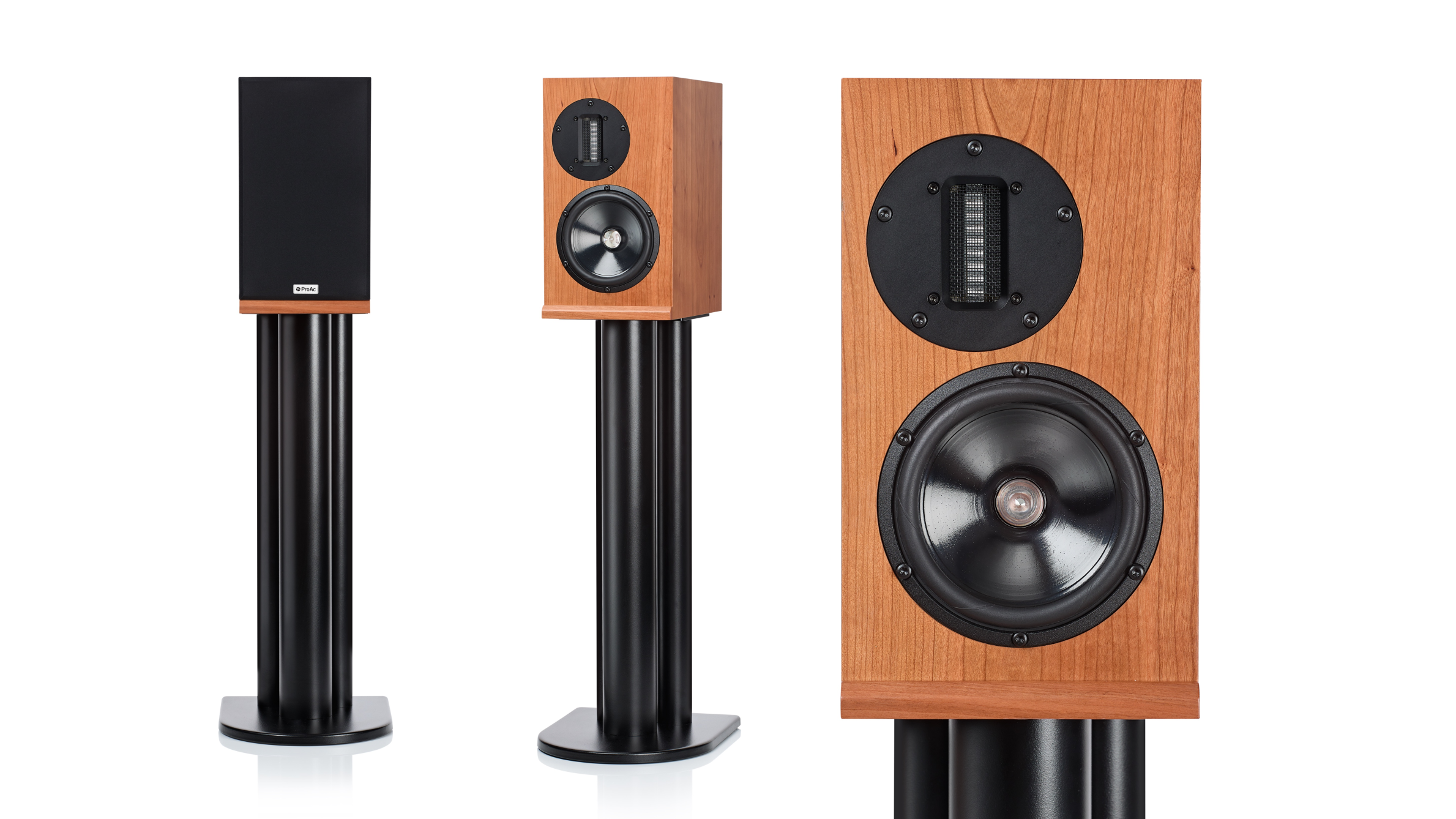Cambridge Audio CXA81 Mk II is a surprising replacement for two Award-winning stereo amplifiers
Updated model replaces both CXA81 and CXA61 amps

The latest hi-fi, home cinema and tech news, reviews, buying advice and deals, direct to your inbox.
You are now subscribed
Your newsletter sign-up was successful
Cambridge Audio has launched a sequel to its Award-winning CXA81 stereo amplifier. The new Cambridge Audio CXA81 Mk II, as it is called, may not be an entire redesign or reimagining, keeping to the exact same dimensions and minimal aesthetic as its predecessor, just as the recently launched Cambridge Audio CXN100 music streamer stuck to the same design as the preceding, multi-Award-winning CXN (V2).
It's with the internal circuitry that Cambridge Audio has focused the core of the CXA81 Mk II's updates. There's a new DAC chip (an ESS ES9018K2M SABRE32) which handles up to 32-bit/384kHz and DSD256 files and aims to deliver "outstanding sonic resolution" from digital sources. There are new premium components used in the amplification circuitry and the sound has been "re-tuned and greatly refined" by the brand's London-based engineers.
Pressed further upon these updates, a Cambridge Audio spokesperson told us: "Extensive comparative listening sessions were done with component swapping, with the aim to improve depth and sensitivity. The result was ultimately the use of ten new op-amps. We added that required depth, better stereo imaging and engagement by putting higher-quality components into the signal path. The improvement to the DAC also provided better channel separation."
Cambridge Audio promises "even greater clarity and musicality" in this updated amp, which will be a tall order considering we loved the five-star CXA81's "powerful yet punchy, dynamic and astonishingly detailed presentation."

Elsewhere, the connectivity remains the same: there are four analogue RCA line level inputs, one pair of balanced XLR inputs, two optical and single coaxial digital inputs. There is a single asynchronous USB type B input which can handle the max file resolutions natively, and you'll also find four pairs of speaker terminals to run two pairs of speakers.
As before, the CXA81 Mk II is powered by Class A/B amplification with 80 watts into 8 ohms per channel. Integrated Bluetooth returns with aptX HD codec support, and there are preamp and subwoofer outputs. A 3.5mm headphone socket adorns the front panel, right next to an identical display/control panel as the previous model.
The lack of any visually substantial or external updates might be disappointing for some, but the real difference maker will be in sound quality. We can only hope for a serious step up in quality from the CXA81 we lauded so much (it's a former Product of the Year winner, too). If the updated amplifier follows a similar re-tuning that the CXN100 received, we can expect to hear a leap forward in some areas – detail, openness, refinement – alongside a potential change in sonic character and balance. But that's us making assumptions. We won't know for sure until we get a review sample into our test rooms and hear the updated amplifier for ourselves.
The latest hi-fi, home cinema and tech news, reviews, buying advice and deals, direct to your inbox.

That's not all: the new CXA81 Mk II integrated doesn't just replace the CXA81 amplifier, it's also replacing the former Award-winning CXA61 amplifier (£699 / $599). Which means there will now only be one stereo amplifier in Cambridge Audio's CX range going forward, and with no mid-price amp sitting in between the affordable AXA35 (£349 / $399) and the new CX model.
The new Cambridge Audio CXA81 Mk II will be available from May 2024 and it will cost £999 / $1199 / €1199. For UK customers, that's the exact same RRP as the original CXA81, which launched four years ago in 2019. It's even $100 cheaper for US customers; the older CXA81 was priced at $1299 when we originally reviewed it.
At this price, the new CXA81 Mk II has fierce contenders to deal with in the form of our current Award-winners in this category, the Arcam A5 (£749 / $699) and Arcam A15 (£1099 / $999), both models that dethroned the CXA81 and CXA61 at the recent What Hi-Fi? Awards 2023.
Will the CXA81 Mk II's re-tuned sound make all the difference? We're excited to hear the new model, so stay tuned for a full review in the near future.
MORE:
Read the original Cambridge Audio CXA81 amp review
Read the recent Cambridge Audio CXN100 music streamer review
Check out our guide to the best stereo amplifiers we have tested and recommend

Kashfia is the Hi-Fi and Audio Editor of What Hi-Fi? and first joined the brand 13 years ago. During her time in the consumer tech industry, she has reviewed hundreds of products (including speakers, amplifiers, turntables and headphones), been to countless trade shows across the world and fallen in love with hi-fi kit much bigger than her. In her spare time, Kash can be found tending to an ever-growing houseplant collection and shooing her cat away from spinning records.
